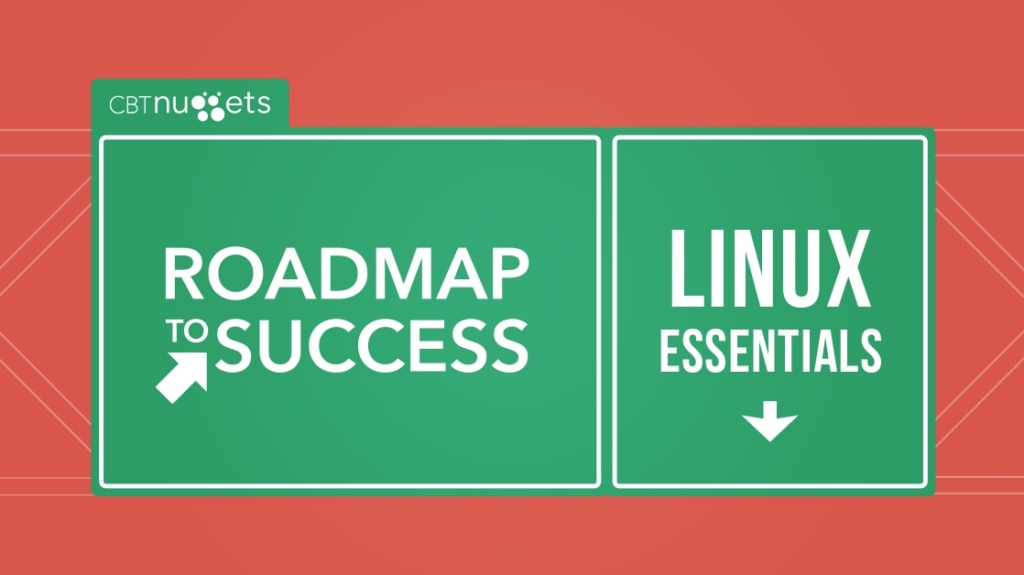Roadmap to Success: Linux Essentials

Roadmap to Success is a series of posts designed to help learners better understand certification pathways, career opportunities associated with those certifications, and the next steps beyond certification.
UPDATED: We recently updated this article on January 3, 2017, to reflect relevant changes to the LPI Linux Essentials certification curriculum.
The Linux Professional Institute (LPI) offers a variety of certification options for learners interested in open-source technologies. The foundation of LPI's certifications is the Linux Essentials Professional Development Certificate (or Linux Essentials), a critical entry point into the world of Linux and related certifications.
As open-source technologies continue to evolve and challenge IT professionals, a Linux Essentials certification equips learners with the knowledge and tools they need to be successful. Typically, this certification qualifies learners for entry-level roles such as system administrator, network administrator, network engineer, DevOps, and systems integration.
LPI Linux Essentials Professional Development Certificate (Linux Essentials)
The LPI Linux Essentials Professional Development Certification (Linux Essentials) is designed to validate a learner's understanding of the Linux and open source industry and popular open source applications, understanding of major components of the Linux operating system, including technical proficiency working on the command line; and basic understanding of security and administration issues including user/group management, working on the command line, and permissions.
In addition, learners must demonstrate an understanding of:
FOSS, the various communities, and licenses;
Knowledge of open source applications in the workplace as they relate to closed source equivalents;
Basic concepts of hardware, processes, programs, and the components of the Linux Operating System;
How to work on the command line and with files;
How to create and restore compressed backups and archives;
System security, users/groups, and file permissions for public and private directories; and
How to create and run simple scripts.
Linux Essentials is made up of just one exam, which is covered by CBT Nuggets training:
Learners pursuing this certificate should be familiar with using Linux and/or non-Linux computers. Linux Essentials is considered entry-level, so the certificate is appropriate for learners new to the industry and just starting with open-source technologies.
Exam Details
Learners seeking the Linux Essentials certificate typically start by setting up an LPI ID and purchasing a voucher before registering for the exam. Before registering, consider reviewing the overview of LPI's How to Take LPI Exams to become familiar with the process.
Time allotted for the exam: 60 minutes
Number of questions: 40
Passing score: 500 (of 800 possible points)
Exam registration: Pearson Vue or LPI Marketplace
Exam cost: $110
Exam objectives: Exam objectives are available; Linux Essentials exam objectives
The Next Step
Linux Essentials is an entry-level certificate that opens up opportunities for learners to continue to advance their Linux skills or diversify their resumes. Learners who earn the Linux Essentials certificate often consider the following options for the next steps in their ongoing professional development:
LPIC-1: System Administrator (made up of two exams: LPIC-1: Exam 101 and LPIC-1: Exam 102-both exams are covered by one CBT Nuggets course: LPI Linux LPIC-1 and CompTIA Linux+)
LPIC-2: Linux Engineer (made up of two exams: Linux LPI LPIC-2: Exam 201 and Linux LPI LPIC-2: Exam 202)
Docker (formal certification is not currently available. Watch Shawn Powers' Docker course to be ready if the certification becomes available!)
Ubuntu (like Docker) has no formal certification available for Ubuntu, but it serves as excellent training for real-world application and skill expansion. Watch Shawn Powers' Ubuntu course to advance your skills.)
Puppet Certified Professional (PCP) (made up of one exam: Puppet 204. CBT Nuggets does not currently offer training specifically addressing PCP Puppet 204, but Shawn Powers developed a Puppet Fundamentals course for those new to Puppet.)
Red Hat Certified Systems Administrator (made up of one exam: RHCSA EX200)
Recertification
Linux Essentials is not subject to expiration or recertification processes.
Career Considerations
Payscale.com/ provides information that can help learners determine appropriate pay scales for job opportunities associated with Linux skills and certifications.
Depending on experience, an employee with Linux skills can earn between $63,499 and $111,311. It should be noted, however, that Linux Essentials is an entry-level certificate, so it is likely that the average salary for most beginner Linux professionals may be lower than is indicated by Payscale.com/. Typical roles or titles for those with strong Linux skills include software engineer, systems administrator, and software developer.
LPI Certifications
The Linux Professional Institute (LPI) developed a certification pathway that is simple and direct. Made up of just four certifications, LPI offers certifications for learners who are just beginning their Linux training, as well as seasoned Linux professionals. Certifications offered by LPI include:
Linux Essentials
LPIC-1
LPIC-2
LPIC-3
There are no prerequisites for the Linux Essentials or LPIC-1 certifications. However, the prerequisite for the LPIC-2 is the LPIC-1, and the prerequisite for the LPIC-3 is the LPIC-2.
Concluding Thoughts
Open-source technologies have been gaining momentum in the IT industry. Earning Linux Essentials certification allows one to delve more deeply into the Linux world and explore open-source expertise. It is the first step to a long and successful IT career.
Watch. Learn. Conquer Linux!
delivered to your inbox.
By submitting this form you agree to receive marketing emails from CBT Nuggets and that you have read, understood and are able to consent to our privacy policy.